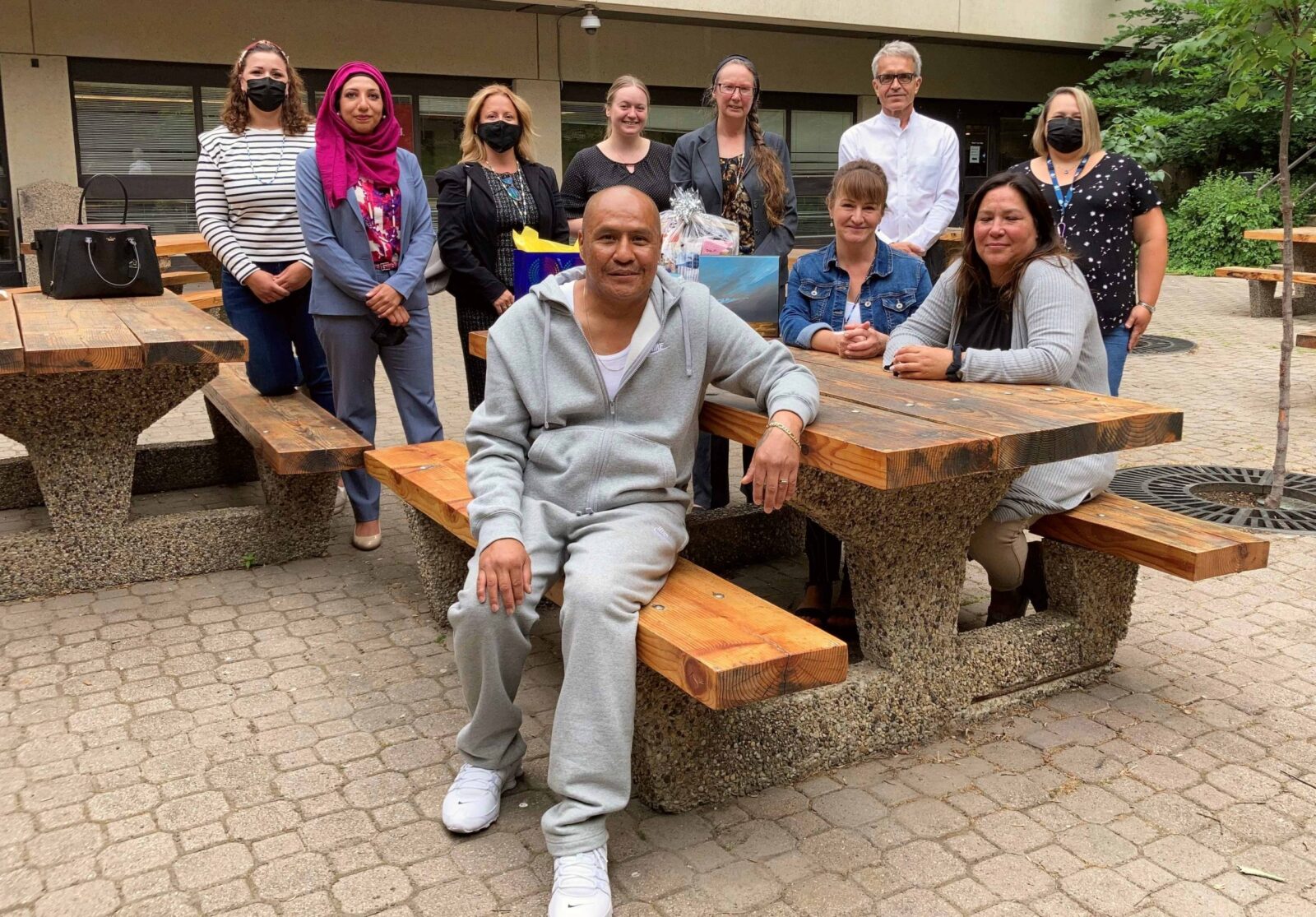That was in 2019. Today, his life has changed dramatically – and a celebration following his final appearance in an Edmonton courtroom last week recognized the challenges he has overcome, and the support of addictions workers, doctors, and the justice system that gave him the opportunity to change his life.
“It was like doors kept opening for me and all I had to do was walk through them,” he recalls. Passing through those doors is much harder than it sounds. To walk a single step in Yellowbird’s shoes is to know mental illness, the intergenerational trauma of residential schools, poverty, houselessness, and the cold, all-powerful control of drug addiction.
Addiction fuels crime
Back in those agonizing first days doctors referred him to a 10-day detox program. He followed up with a month-long addiction recovery treatment program. Now clean and sober, Yellowbird knew he had to take control of his life. One of the challenges he faced was criminal charges laid for shoplifting in January and February of 2019.
He admits to stealing so he could buy drugs. It appeared likely he would be sent to jail. In June of that year, his case was moved to Edmonton’s Mental Health Court, where Legal Aid Alberta lawyer Amna Qureshi represented him.
“He died that day, but he was lucky to have a friend with him who called an ambulance. He was in the ICU for four days.”
Mental Health Court is a specialized criminal court that works to help individuals charged with a crime due to mental health issues. The court helps people overcome complex issues they face, such as housing, addictions, trauma, and poverty, to break the cycle of crime.
Yellowbird was sentenced in July, 2019, to two years of probation on the conditions that he continued following the new path he had set for himself.
Challenges of recovery — an overdose
At times it seemed impossible. On top of living with roommates who were racist, taking drugs, and trying to get Yellowbird back on drugs, his mother fell ill and was hospitalized. The last straw came when his psychiatrist stopped practicing and his prescription for Suboxone, a drug used to treat the symptoms of opioid withdrawal, expired.
Suffering withdrawal, he bought street drugs, took a fraction of the amount he’d become accustomed to while using heavily, and overdosed.
“He died that day, but he was lucky to have a friend with him who called an ambulance,” Qureshi told the court. “He was in the ICU for four days.”
Once discharged, he found a new psychiatrist, worked hard to further reduce the dosage of prescription Suboxone he was taking, and continued seeing his addictions counsellor.
The hard work continues
Life was slowly getting better as he took on challenge after challenge. Yellowbird has undergone a vivid, positive transformation.
During his final court appearance, tributes were paid to Yellowbird by Qureshi, addictions counsellor Tracy Kosik, Crown Prosecutor Maxine Bond, and Provincial Court Judge Michele Collinson.
“I have seen the change in Teh – not only because of his sobriety or management of his mental health, but in his confidence and his understanding of the pressures and context that were beyond his control in many ways, including the horrid intergenerational impact of the residential school system,” Qureshi told the court.
Yellowbird was honoured with gifts and warm wishes during an informal gathering outside the courthouse, following his final appearance.
For his part, Yellowbird knows that seeking out help works. And he knows where to find it. “I’ve reached out for help. I’ve sought out support,” he said.
“I’m pretty sure this has made me stronger but I’m going to continue seeing my addictions counsellor, continue seeing my psychiatrist, go for walks every day, and stay in contact with my family.”


